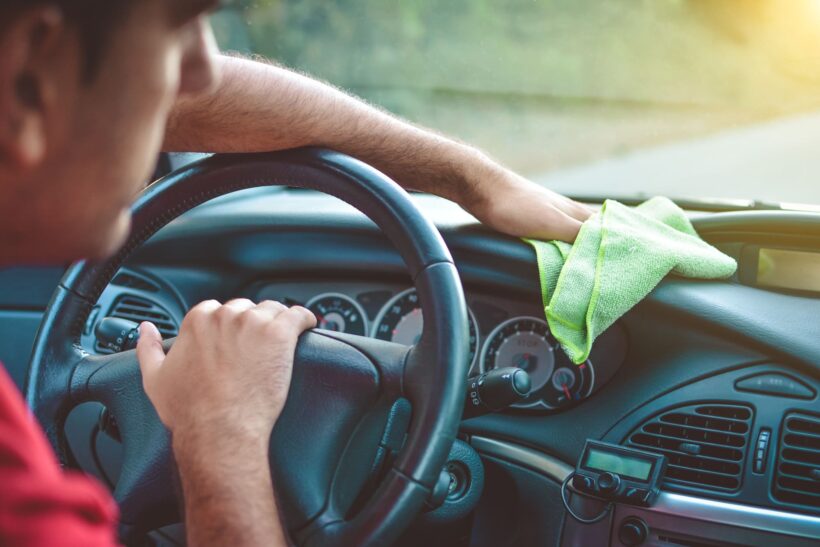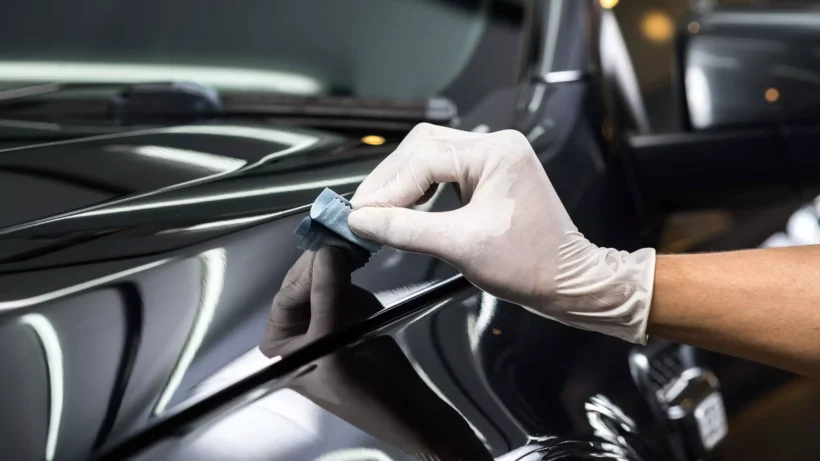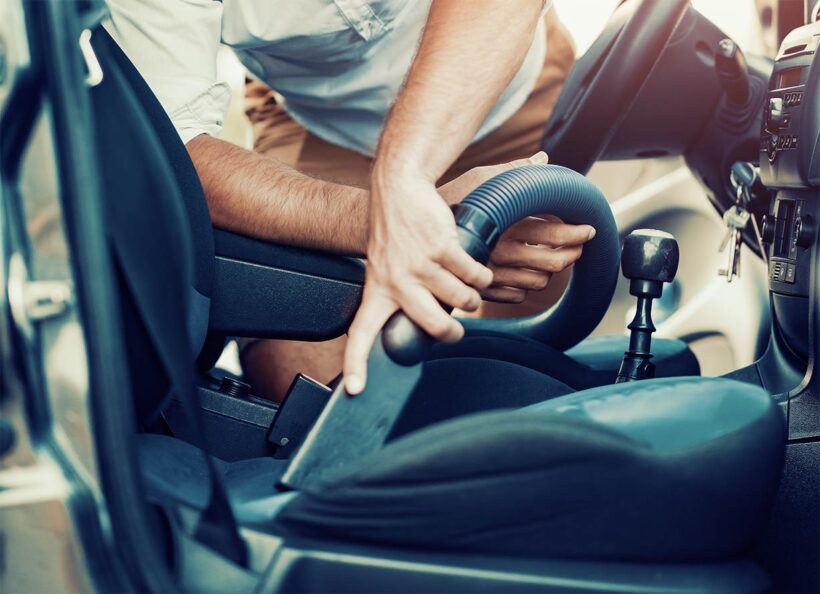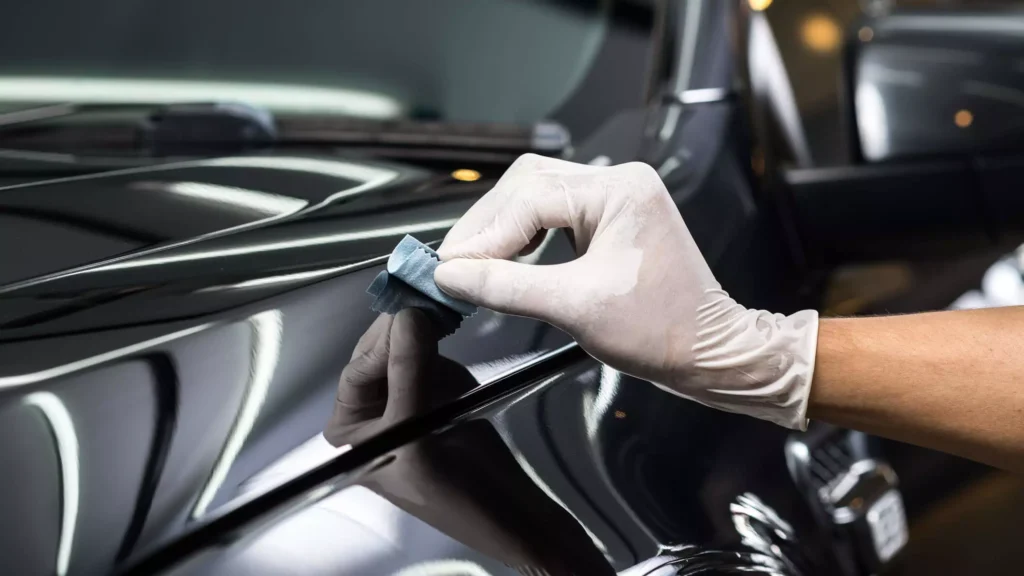Everyone should know the basics of car maintenance and what to do if they experience problems. This article will provide you with the necessary information to keep your car running smoothly and why you should look after your car by using a mobile car valeting service.
There are many reasons why it is important to maintain a car, including safety and fuel efficiency. We’ve all heard that old adage “an ounce of prevention is worth a pound of cure”, which can also apply here.
Step 1: Change Your Oil and Filter Every 3-5 Months or 5k Miles – What’s the Difference?

Oil is the lifeblood of your car. It’s the engine’s main component. Without it, your car won’t run. And because oil has a limited lifespan, you need to change it regularly to keep your car running smoothly and efficiently.
There are two ways to measure oil change frequency: miles or months. The rule of thumb is that you should change your oil and filter every 3-5 months or 5k miles.
How do you change the oil in your car?
The first step in changing the oil in your car is to make sure that the level is right and that you are using the proper type of oil. Make sure that you read the owner manual to determine the correct amount. Fill the car to the recommended level, and make sure that you replace the cap. After you’ve changed the oil, test the engine for 30 to 60 seconds. This will help you detect any leaks or debris.
You can use a sturdy jack to raise the car and find the oil drain plug. Then, using a socket and spanner, unscrew the plug. Be sure to use a plastic basin underneath the car to catch the dripping oil. Afterwards, pour the oil into the basin. You can also use a funnel to pour the oil out. Ensure that the oil drain plug is in the correct place so that you can catch any drips before you start the process.
Next, check the oil level on the dipstick. A colour and a dipstick indicate the oil level. A black or brown colour indicates full oil. A mechanic should replace a yellow or metal-coloured oil. The owner’s manual will have detailed instructions on how to change the oil. A properly adjusted dipstick will improve engine performance and improve fuel economy. If you’re unsure, consult the owner’s manual for your specific vehicle.
Step 2: Have A Car Valet Regularly
It is a good idea to have a car valet regularly. They will ensure that your car is always clean and tidy. This will help you avoid the stress of cleaning your car yourself, which can be difficult for some people. We recommend having your car washed every two weeks and fully valeted every 4-6 weeks. This will keep your car in great condition and will help retain the value of the car long term.
The exterior wash and vacuum will help keep the exterior of your vehicle looking great, with no dirt or grime. Interior cleaning can also be useful if you regularly have kids or pets in the car.
You can also opt for a mobile car valeting solution like Wash Doctors where a local professional will come to your home and valet your car whilst you sit back and relax or get on with some work. This is great if you’re working from home or have something more important that you need to get on with.
Step 3: Replace Your Brake Fluid

Brake fluid is a type of hydraulic fluid used in a car’s braking system. It helps lower the viscosity of brake fluid and prevents air bubbles from entering the system. The main function of brake fluid is to act as a medium for transferring pressure from one part to another. Brake fluids are designed to be incompressible and have high boiling points so that they do not evaporate or vaporize easily, which could lead to reduced braking power.
The brake fluid should be replaced every two years or 24,000 miles (whichever comes first) for optimum performance and safety. There are different types of fluids available in the market which can be used for different weather conditions like snow or rain.
Replacing brake pads
Brake pads are the most important part of a car. They help to stop the car. When they wear out, it is important to replace them with new ones. How often should you change your brake pads? It depends on what type of car you have, but brake pads are usually good for approximately 40,000 miles depending on usage and vehicle condition. If you drive more than 40,000 miles in a year it’s recommended to get them replaced more often.
Step 4: Inspect Air Pressure in Tires Regularly
Since tires are the only contact point between your car and the road, it is important to keep an eye on their pressure. If your tire pressure is too low, it can cause uneven wear on the tires and affect fuel efficiency. If your tire pressure is too high, even if you don’t feel any difference in the ride quality, you are risking a flat tire.
Inspecting air pressure in tires regularly is an easy way to make sure that your car is running at its best. It takes just a few minutes and can help prevent a lot of problems from happening down the line. Modern cars will have automatic sensors checking when the tyre pressure gets too low and will send an alert to your dashboard to tell you they need more air. Check if your car has these sensors to save you spending time checking them manually.
How do you check your tyre pressure?
Check the tyre pressure with the tyre pressure gauge, you can find these in any local garage.
Step 5: Checking exterior lights

Keeping your vehicle’s exterior lights in good condition is important for both your safety and the safety of others. The headlights are particularly important as they provide visibility at night and alert oncoming drivers. It’s essential to test the lighting of your vehicle at each oil change interval to make sure it’s working properly.
Conclusion – What Else Can You Do?
You should also check your tire pressure often, keep up with regular maintenance, and always make sure that you have an emergency kit in case something happens.

